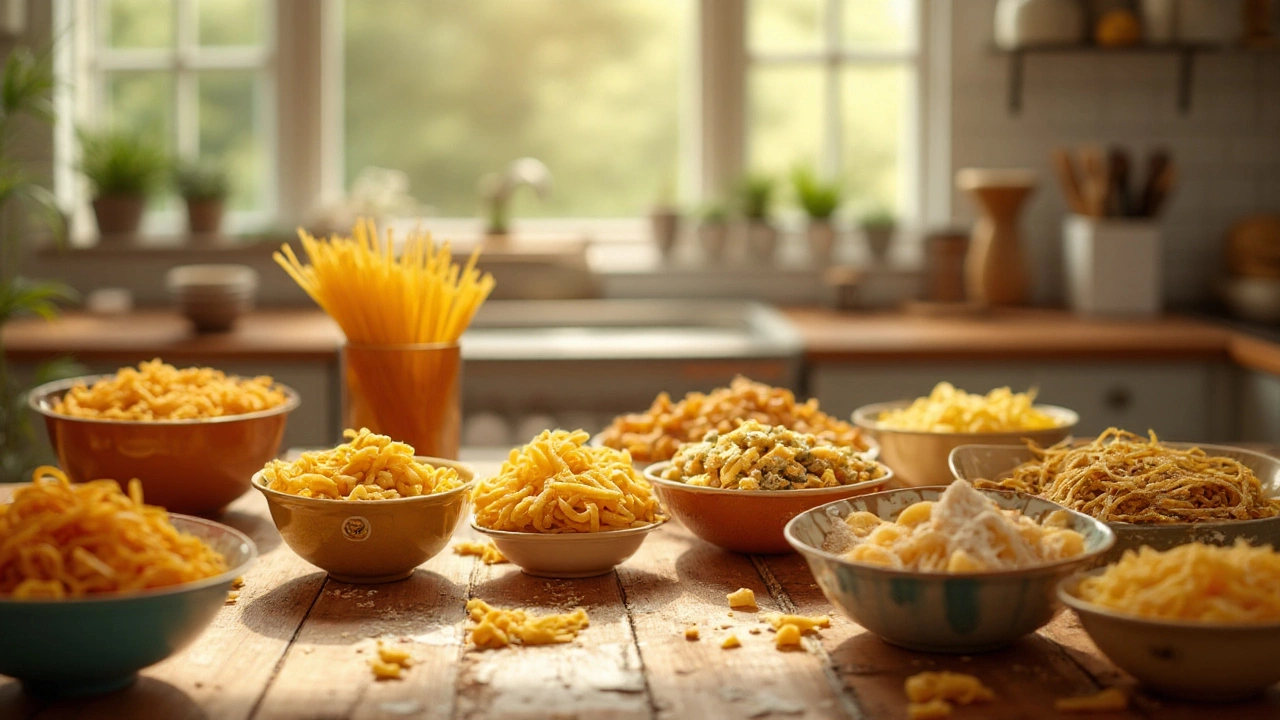Is Pasta Vegan? What You Need to Know Right Now
Most people think of pasta as just flour and water, but not every shape is automatically vegan. Egg‑based noodles, certain sauces, and hidden dairy ingredients can turn a simple plate into a non‑vegan dish. In this guide we’ll break down the basics, show you how to spot animal products on the package, and point you to reliable vegan pasta choices.
Check the Ingredient List: Flour, Water, and Eggs
The classic Italian pasta that you find in many supermarkets is made from durum wheat semolina and water – that combo is 100% plant based. However, many fresh or specialty pastas add eggs for richer texture and color. Look for “egg,” “egg whites,” or “albumin” in the ingredient list. If you see any of those, the pasta isn’t vegan. Some brands label the product as “egg‑free” or “vegan” right on the front, which makes spotting it easier.
Watch Out for Hidden Non‑Vegan Additives
Even dried pasta can contain surprises. Some flavored varieties (like cheese‑filled shells or spinach fettuccine) use dairy powders, whey, or casein for taste. Also, certain preservatives or colorings (e.g., carmine for red hue) derive from animal sources. When in doubt, search the exact ingredient name online or check the manufacturer’s FAQ. A quick scan of the label usually tells you if the product is safe for a vegan diet.
If you’re buying pasta from a bulk bin, ask store staff about the sourcing. Many larger grocery chains keep separate bins for vegan and non‑vegan dry goods, but cross‑contamination can still happen. Using a clean scoop and checking the bin’s signage helps keep things clear.
Now that you know what to look for, let’s talk about the best vegan pasta options you can trust. Brands like Barilla (their regular spaghetti and macaroni are egg‑free), Biona, and Explore Cuisine offer a range of shapes made entirely from durum wheat or alternative grains. For gluten‑free vegans, rice, quinoa, or lentil pastas from companies such as Tolerant and Explore Cuisine provide protein‑rich alternatives without animal ingredients.
When cooking, keep sauces vegan too. Traditional marinara, garlic‑olive oil, or a simple pesto made with nutritional yeast instead of Parmesan keeps the entire dish plant based. If you love a creamy sauce, blend cashews, cauliflower, or oat milk for a rich texture without dairy.
Quick tip: Do a “taste test” before cooking a new brand. Boil a small portion and check the texture. Egg‑based pasta will feel slightly more rubbery, while vegan varieties tend to stay firm but tender when al dente.
Finally, if you’re dining out, ask the server whether the pasta contains egg. Most restaurants are happy to clarify, and many now list vegan menu items online. A little question can save you from an accidental animal product.
Bottom line: Not every pasta is vegan, but the majority of dried shapes are. By reading labels, knowing the common non‑vegan additives, and choosing reputable vegan brands, you can enjoy pasta night without compromising your plant‑based lifestyle.
Can Vegans Eat Pasta? The Real Truth About Pasta on a Vegan Diet


